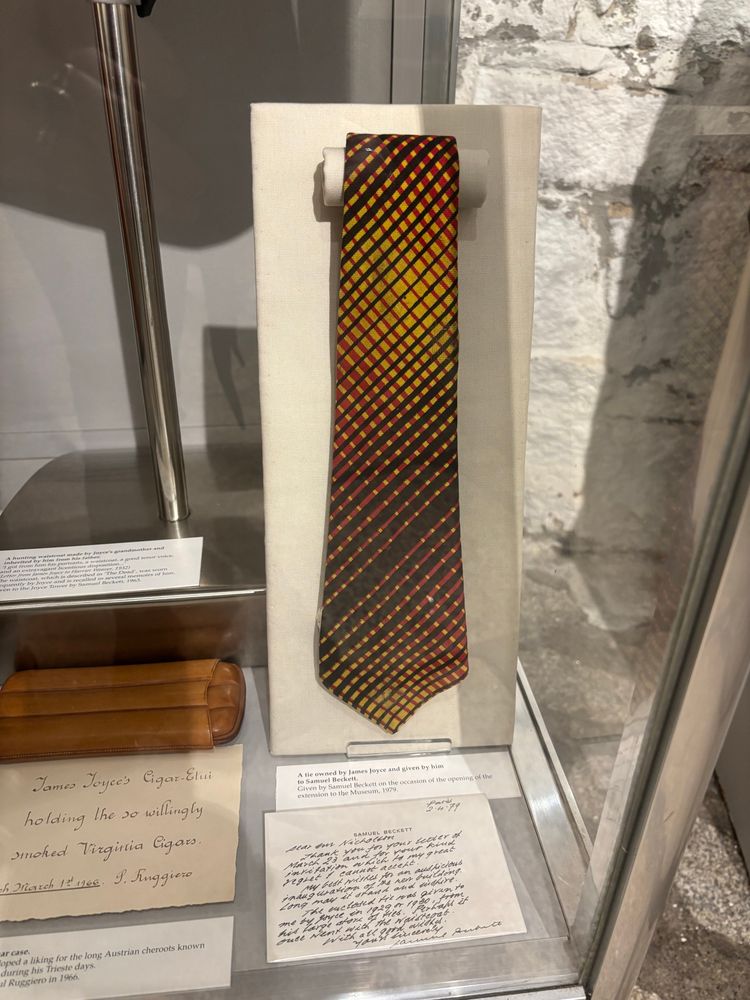Listen on Spotify (transcripts available)
Listen on Apple (transcripts available)
Update: Here are the photos of James Joyce’s Martello Tower I mentioned.
Looking towards the sea from the strand.
A tie Joyce gave Samuel Beckett, which is exhibited in the Martello Tower.
Me, pretending to be Buck Mulligan, spying the ship named the Samuel Beckett.


